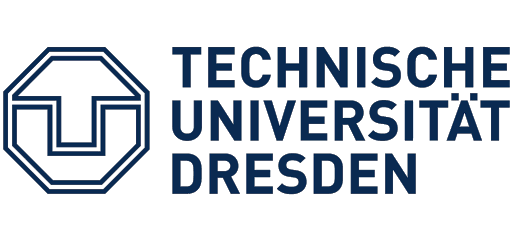TUD
PARTNER SHORT DESCRIPTION

KEY PEOPLE
Jeronimo Castrillon is a professor in the Department of Computer Science at the TU Dresden, where he is also affiliated with the Center for Advancing Electronics Dresden (CfAED). He received the Electronics Engineering degree from the Pontificia Bolivariana University in Colombia in 2004, the master degree from the ALaRI Institute in Switzerland in 2006 and the Ph.D. degree (Dr.-Ing.) with honors from the RWTH Aachen University in Germany in 2013. His research interests lie on methodologies, languages, tools and algorithms for programming complex computing systems. He has more than 100 international publications and has been a member of technical program and organization committees in international conferences and workshops (e.g., DAC, DATE, ESWEEK, CGO, LCTES, Computing Frontiers, ICCS and FPL). He is also a regular reviewer for ACM and IEEE journals (e.g., IEEE TCAD, IEEE TPDS, IEEE TC, ACM TACO, ACM TODAES and ACM TECS). In 2014, Prof. Castrillon co-founded Silexica GmbH/Inc, a company that provides programming tools for heterogeneous embedded multicore architectures which was acquired by Xilinx Inc in 2021. Prof. Castrillon is Senior Member IEEE, Member ACM and was a founding member (2017-2019) of the executive committee of the ACM “Future of Computing Academy” (FCA).
Felix Wittwer is a PhD student at the Chair for Compiler Construction at the TU Dresden. He received both his Bachelor’s and Master’s degrees in Computer Science from TUD in 2017 and 2020, respectively. His main research interests are dataflow-based compiler optimizations, deterministic actor frameworks and programming language design in general. In the past he has worked on compiler frameworks for implicit deterministic parallelism and is experienced in systems programming.
Karl Friebel is a PhD student at the Chair for Compiler Construction at the TU Dresden. He received his Diplom in Computer Science (Dipl.-Inf.) from the TUD in 2020. His research focus is on improving compiler tooling, with emphasis on progressive lowering (e.g., MLIR) and automated hardware design. Karl has gained considerable experience in end-user applications, mainly in the area of scientific computing and fluid dynamics in particular.
MAIN activities
TUD is responsible for programming abstractions, for instance in the form of domain-specific languages and higher-level programming models, and the corresponding compiler infrastructure for the heterogeneous and scalable computing systems envisioned in EVEREST. In this context, TUD leads WP4 on a “Data-oriented Compilation Framework”, providing designers with development tools that transparently optimize, e.g., data allocation and communication, and generate code against existing mainstream programming models and high-level synthesis tools.